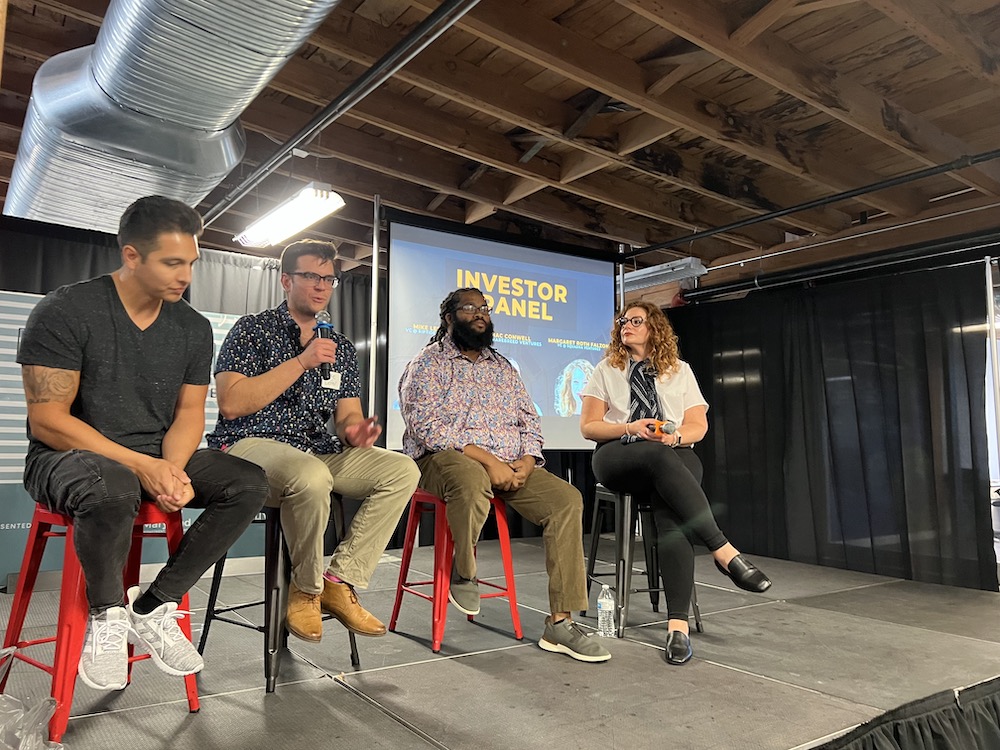Last week’s Baltimore Innovation Week (BIW) offered myriad panels and fireside chats to help founders scale, fundraise and build economically impactful companies. BIW 2022’s penultimate event, “Helping Founders Flourish and Raise Millions,” carried that focus to its near-conclusion with three constituent talks that featured local experts in various fields — all of whom shared valuable perspectives.
George Nemphos, the founding partner of Towson-based law firm Nemphos Braue, kicked off the afternoon with a legal AMA-style chat. With facilitation from session moderator and Kamp founder Phil Castro, Nemphos advised on everything from whether to incorporate as an LLC or corporation, how to navigate equity allocation and vesting and what legal fees to expect. Nemphos’ advice offered founders the chance to get their legal fundamentals right and avoid a lot of pain in the long run.
Kristen Valdes then delivered a fundraising-focused keynote that drew from her experience raising over $60 million for b.well, the company she founded to drive change in people’s relationships with healthcare systems via a unique platform. She shared that she joined eight accelerators while seeking early funding to gain access to angel investors. Valdes ended up with 56 investors on her cap table for her seed round — an amount that, at the time, she didn’t realize was too many investors and hurt her chances of raising a Series A.
Valdes also admitted that she didn’t do enough due diligence on her early investors, eventually learning that funders may promise the moon but not add value. She recommended that founders research potential investors to understand their thesis and capital deployed vs. raised, as well as speak with three references from portfolio companies before accepting an investment.
The b.well CEO recognized the delicate balance between optimism and realism. Valdes had a lucrative initial contract ($35 million in five years), so she was optimistic. However, she noted that it is better to overdeliver and underpromise; if you don’t hit your numbers, and investors don’t re-invest in your next round, it comes up as a red flag.
A trio of local investment leaders — RareBreed Ventures Managing Partner McKeever “Mac” Conwell II, Squadra Ventures COO Margaret Roth Falzon and Riptide Ventures Managing Partner Mike Leffer — wrapped the afternoon with a panel exploring how to run a tight fundraising process. Their steps included the following:
- Three to six months before a raise, you should be cultivating relationships and making yourself visible in the ecosystem, via such avenues as entering pitch competitions and giving lectures
- Then, in a two-week period, schedule as many meetings as possible to generate FOMO (which is best done through traction and/or credible investors). The two-week period only works if you have traction and investors wanting to be in your round.
See more of the participants’ specific advice by checking out the livestream of Friday’s events (Castro’s introductory remarks begin at 3:55:50):







